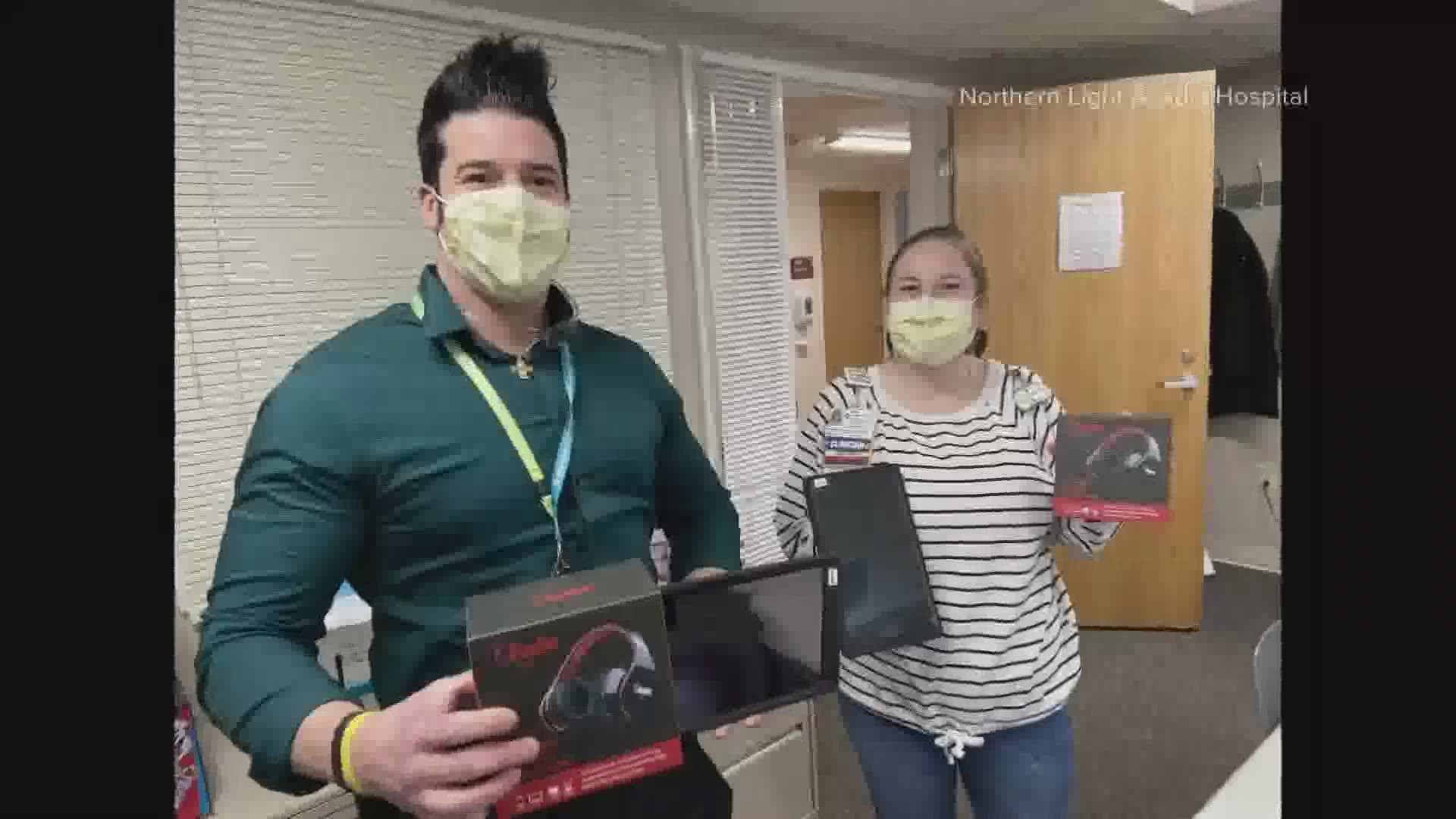BANGOR, Maine — Compared to a year ago, much of life looks different, as a result of changes brought on by a pandemic that has tested Mainers and Americans. Not all of the adaptations have been negative, though -- and some could be perceived as silver linings. That includes an increase in the use of telehealth -- a tool that has proven especially helpful for those living in rural and isolated parts of Maine.
A number of initiatives have taken place since the pandemic began to help more Mainers get access to telehealth services. One of the newest includes an effort at Northern Light Acadia Hospital to help keep kids in need connected in a time of isolation.
Chris McLaughlin is the associate vice president of community and pediatric services at Northern Light Acadia. He says over the course of the pandemic, the demand for the hospital's pediatric day treatment program has "really grown dramatically". This program serves kids from five years old through high school five days a week, as they participate in clinical groups; occupational, individual, and family therapy; and find time for school through a partnership with the Bangor School Department. Those involved have been meeting in a hybrid manner this school year -- but sometimes, Maine's weather can get in the way.
"A simple snow day, or a couple of back to back snow days, can really delay the treatment process that's happening," McLaughlin explained about the challenges of interrupting routine.
Northern Light Acadia's board of trustees decided to donate its funds this year to try to alleviate that problem, purchasing new tablets for these pediatric patients to use if they can't get to in-person meetings and don't have technology available at home. These devices are locked down, so kids can only access Zoom to join a clinician and peers virtually. Right now, the hospital has 12 Kindles and 12 sets of headphones available but says it is waiting on other devices, too, like iPads and an Amazon Alexa product.
If anything, the pandemic has showcased the effectiveness of telehealth -- and some hope that the initiative will continue.
"Honestly, I hope this never goes away," McLaughlin said.
Kara Hay, the chair of the board, says members always listen to the hospital staff to determine the most critical need for funding.
"We worry for our youth and the impact the last year has had," Hay said about the board's focus on telehealth access for young people. "Being isolated over time can certainly have a strong impact on behavioral health."
This initiative is one of many happening around the state, as more Mainers turn to telehealth. Michelle Probert is the director of MaineCare, Maine's Medicaid program that provides health care insurance for more than 300,000 lower income Mainers. She says MaineCare had reliable telehealth options even before the pandemic, but now people are actually using them. Probert says at the highest point of the pandemic, MaineCare saw a "900-fold" increase in the use of telehealth services, with about 12 percent of Mainers using them last April.
"That cultural shift that we've been waiting for had to happen with COVID," Probert expressed. "People took a leap and said, 'Okay, maybe I can have interaction with my provider using my tablet, or using my smartphone.'"
Probert says in more rural parts of the state, that ability to access health care virtually has been especially helpful -- and she and her team have been trying to promote it for a while. Maine is actually in the top two states for Medicaid for the use of children's telehealth services during the pandemic.
"Telehealth is a really good solution for many areas of Maine that otherwise might not have as many providers to choose from," Probert said.
Probert says there is still work to be done to improve access to telehealth, like expanding broadband in our state and helping all Maine families get household devices without financial barriers -- but there are conversations happening to address those issues.
If you or your child is in need of mental health support, there are immediate resources available, including:
- National Crisis Text Line at 741-741
- NAMI Maine Teen Text Support Line at 207-515-8398
- GEAR Parent Network
- Acadia Hospital CARES

